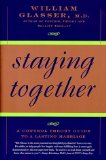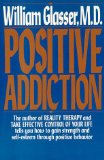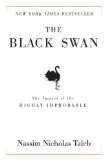Near my desk there is a stack of unread books (And ebooks). They taunt me. What ideas are they holding, eager to be assimilated and used, but stagnant until I can find the time to read them, tease out the knowledge, and add it to my mental toolbox? There are limits on acquiring brain technology, and it seems they are presently difficult, if not impossible, to overcome.
There’s an idea articulated in Neal Stephenson’s Cryptonomicon that goes something like this: imagine there is a project that will take five years to complete. Imagine further that a technology that could be developed in a year would, once acquired, enable the project to be completed in only two years. Thus, rather than use existing technology to complete the project in five years, it makes more sense to acquire the time-saving technology first.
Reality is considerably less predictable than this simple example allows, but it still illustrates a useful idea: acquiring the right technology first can save time and effort later.
This idea seems most relevant to acquiring brain technology, which I’ll define as the sum of useful ideas, useful paradigms, and knowledge. Modern-day prosthetics, also known as our mobile phones and laptops, are rapidly eliminating the need for this last bit of brain tech. The rote knowledge we need is almost always a google or two away (See the recent grind skill discussion on maximizing Google search). However, these prosthetic devices can’t yet do the work of a useful idea or paradigm.
Functional ideas and paradigms are the programs by which our brains process data. The better the programs, the faster we can process problems and the better our answers will be. The better our brain technology, the better our lives. It is for this reason that I take measures to acquire as much brain tech as possible. This is why I read books, blog (On the power of blogging), and follow my curiosity. It’s all in an effort to boost my brain tech, which I hope will improve my life as it improves my ability to solve problems and understand the world.
It seems simple enough but there are problems: (1) it takes a long time to acquire brain technology, it’s difficult or impossible to know what it is we should be seeking to know (2), and it’s hard to know when our existing brain technology is obsolete (3). I have no good ideas on how to attack the second problem, which is Black Swan-esque and thereby unforeseeable. Awareness that it exists may mitigate our base ignorance but then again, it probably won’t. Regarding problem three, seeking out new brain tech as well as simply sharing our own brain tech with others may help — as far as mundane tasks go, that is driver behind writing about Grind Skills.
I’m left to dwell on the first problem. My solution here is to filter through as much information as I can manage and mine out the useful ideas and paradigms. By filtering information, I usually mean reading books and blogs. On the blogging front, a feed aggregator is a must-have. And as far as reading books, get thee to a library (or amazon.com)!
Reading provides a starting point, but even here there is a problem. The volume of information that must be mined to find a single useful idea is immense. There is a brain bandwidth problem: I can only read so fast. Furthermore, even supposing I’m maxing out my reading speed*, I will inevitably read books and blogs that have broken ideas and paradigms (or none at all). How do I reduce the risk of wasting time and energy spent reading empty datasets (books/blogs)? I don’t know.
One workaround to my own bandwidth limitations is to leverage the bandwidth of others. I do this by surrounding myself with others who similarly seek out useful ideas and paradigms and are eager to share what they know. As far as the Internet goes, there again we see the power of blogging and the importance of a good, share-friendly feed reader. In real space, I think Nassim Taleb’s suggestion to “go to parties” is astute. Socialize (Don’t isolate yourself!)! Otherwise, observe others and ask questions.
These are ground-breaking insights, I know. I’m mostly just articulating a problem that has been on my mind. It’s great that modern technology has improved our understanding of the world and enabled us to outsource at least some of our brain functions to our gadgets (Thereby freeing up some bandwidth). However, it seems to me that the age-old ways to acquire wisdom, which is all brain technology really is, are the only ways we’ve got. Read as much as you can and share your tech with others**. And that’s what I’ll be doing until some other tech comes along and renders this brain tech obsolete.
* Speaking of brain tech, I’ve previously attempted learning to speed read. I’ve had no success with it though.
** I’m optimistic that this latter method (sharing) is being accelerated via the Internet.







